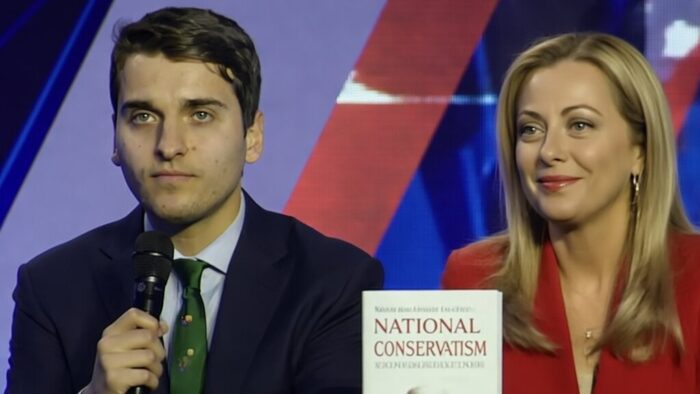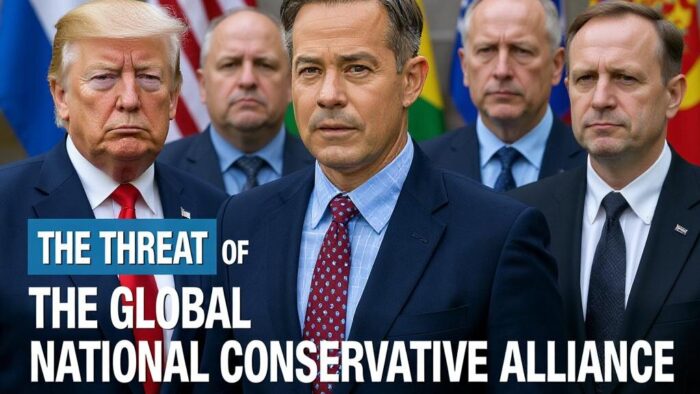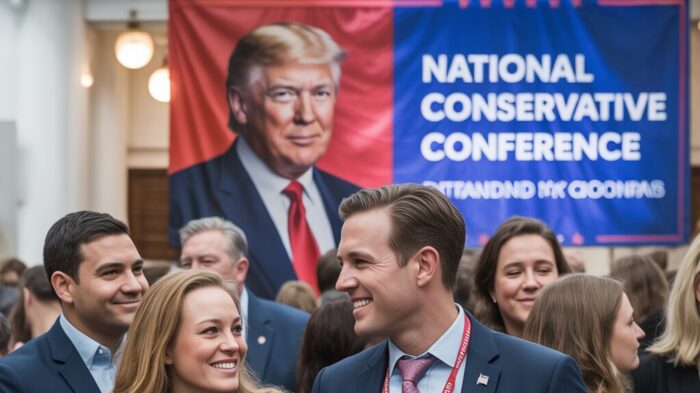The National Conservatism movement crisis has emerged as a defining challenge during what should be the movement’s moment of triumph under the Trump administration. On 5 September 2025, The Dispatch, a right-leaning publication, reported that Yoram Hazony, the intellectual leader of the nationalist conservatives, warned attendees at the National Conservatism Conference that they may be at the peak of their political power and risk squandering it, revealing deep anxieties about the sustainability of their influence. The article begins:
The nationalist conservatives have won. Donald Trump is in his second term as president, pursuing an agenda of aggressive immigration enforcement, protectionist trade policy, and an expansion of executive power. On national security policy, the “restrainers” are in and the old-school Reaganites and hated “neocons” are out. The cultural dominance of wokeism and secular progressivism has ebbed as a more confident and assertive right-wing culture seemingly rises up. This is everything the folks organizing, speaking at, and attending the National Conservatism Conference this week in Washington have been hoping for. So why isn’t everyone happier about it?
Read more: https://thedispatch.com/article/national-conservatives-crossroads-hazony-vought/
Key Points
- Yoram Hazony warned National Conservatism Conference attendees that this is the best coalition they will ever build and urged them to stop complaining that the Trump administration has not gone far enough.
- Russell Vought declared that the philosophical agenda of common good conservatives does not have all the time in the world and warned there is a point of no return for implementing their vision.
- The unspoken fear among nationalist conservatives is that if Trump’s second term ultimately fails, their vision oriented around right-wing industrial policy and retreat from the global stage will have little purchase when he exits.
- Rachel Bovard called for permanent revolution by demanding that Trump’s populist politics, nationalist vision, and permanent offense strategy must become the baseline for Republican presidential candidates from now on.
National Conservatism: The Ideological Coalition Uniting Global Right-Wing Movements
National Conservatism is an ideological coalition uniting right-wing movements worldwide under principles centered on national sovereignty, cultural identity, and opposition to global institutions. The movement operates through a Global National Conservative Alliance (GNCA) that represents a significant departure from Reagan-era conservatism toward more nationalist and protectionist positions.
The ideology rests on ten fundamental principles including exclusionary sovereignty, economic nationalism, harsh immigration policies, and traditional family structures. Beyond this, National Conservatism prioritizes economic development over environmental protection, implements restrictive social welfare programs, and promotes nationalist education that emphasizes traditional values over global perspectives. The movement also embraces controlling media narratives and militarized national security approaches.
Hungary has become the central hub for this alliance. Viktor Orbán’s government established sovereignty protection measures that investigate foreign-funded NGOs, framing democracy assistance as electoral interference. Russian President Putin has positioned himself as an ideological leader of this movement, delivering speeches that extensively reference culture war themes and traditional values while opposing what he characterizes as Western cosmopolitan elites.
The alliance has expanded through National Conservatism Conferences and CPAC events held across multiple continents, bringing together European far-right leaders, American conservatives, and global figures. Many Trump appointees have participated in these gatherings, underscoring the movement’s influence in U.S. politics.
According to research from the European Conservatives and Reformists group, parties like Poland’s PiS, Italy’s Brothers of Italy, and Hungary’s Fidesz exemplify the movement’s comprehensive implementation of national conservative principles. The London School of Economics characterizes National Conservatism as a post-populist phenomenon that has become the de facto mainstream right in many political systems, distinguished by its focus on national sovereignty and state power to shape culture.
External References:
— National conservatism — Wikipedia
— National Conservatism: A Statement of Principles
— National conservatism is the new paradigm — LSE
Disclaimer: The Global Influence Operations Report (GIOR) utilizes AI throughout the posting process, including the generation of summaries for news items, introductions, key points, and, often, the “context” section. We recommend verifying all information before use. Additionally, all images are generated using AI and are intended solely for illustrative purposes. While they represent the events or individuals discussed, they should not be interpreted as real-world photography











